Welcome to the journey of exploration through the vibrant landscapes and rich heritage of Pennsylvania, the Keystone State. Nestled in the northeastern and Mid-Atlantic regions of the United States, Pennsylvania holds a special place in the country’s history. Renowned as the birthplace of America’s independence and brimming with natural beauty and bustling cities, this state invites visitors to embark on an unforgettable experience.
But, where exactly is Pennsylvania on the map? As we delve into its vast array of cultural and natural offerings, we’ll also guide you through its geographical positioning. From the rolling Appalachian Mountains to the cosmopolitan allure of Philadelphia, follow us as we explore Pennsylvania, tracing its location, understanding its diverse terrains, and unveiling its hidden gems. Get ready to discover Pennsylvania like never before!
Where is located Pennsylvania on the United States Map
Pennsylvania is located in the northeastern and Mid-Atlantic regions of the United States. It is bordered by six states: New York to the north, New Jersey to the east, Delaware and Maryland to the southeast, West Virginia to the southwest, and Ohio to the west. To the northwest of Pennsylvania, you’ll find Lake Erie, one of the five Great Lakes of North America.
If you’re looking at a U.S. map, Pennsylvania is approximately in the middle of the East Coast section. It’s situated to the right of the Great Lakes region and below the New England states. The state’s southeastern corner is roughly parallel with Washington, D.C.
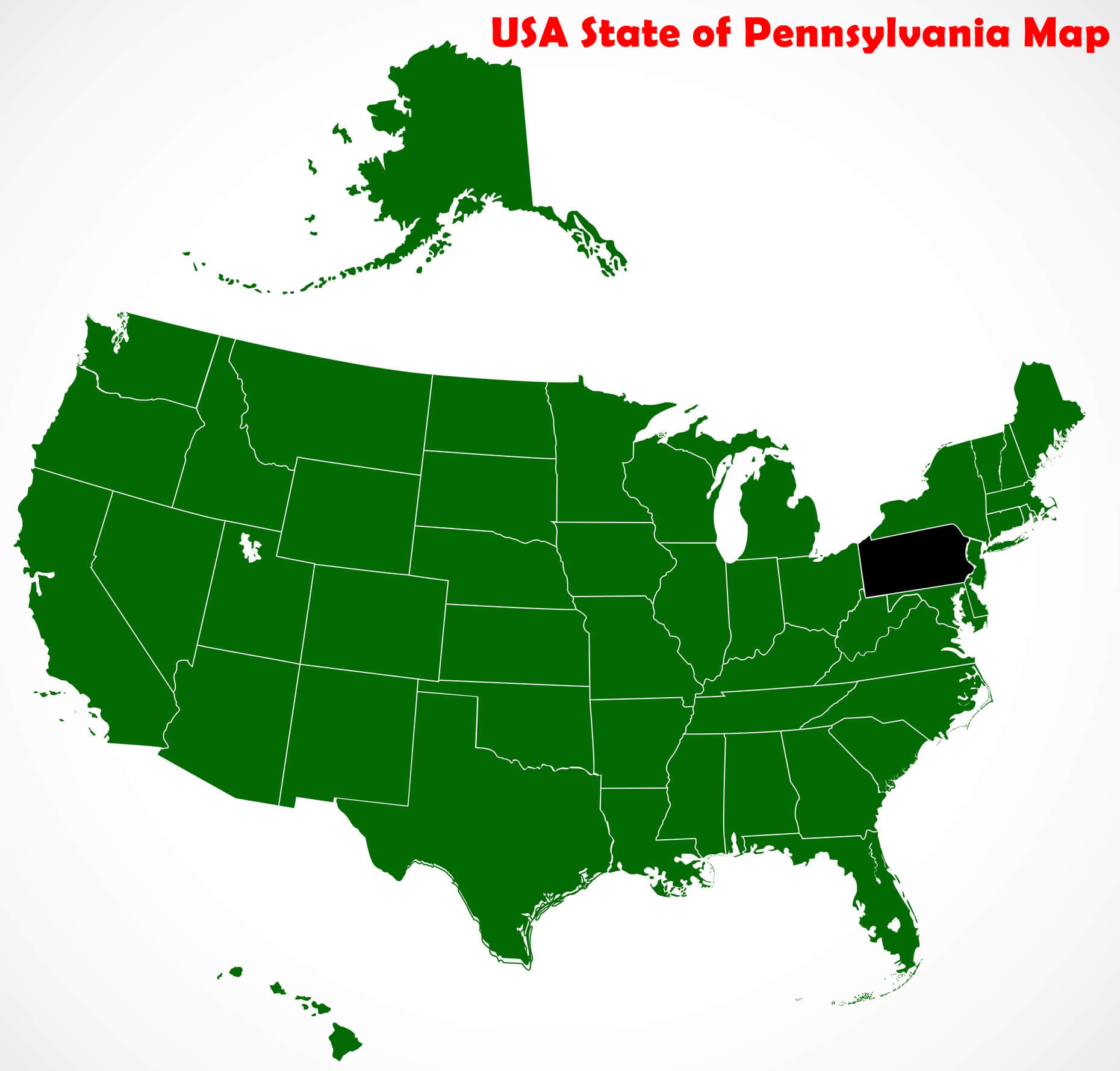
Brief information about Pennsylvania
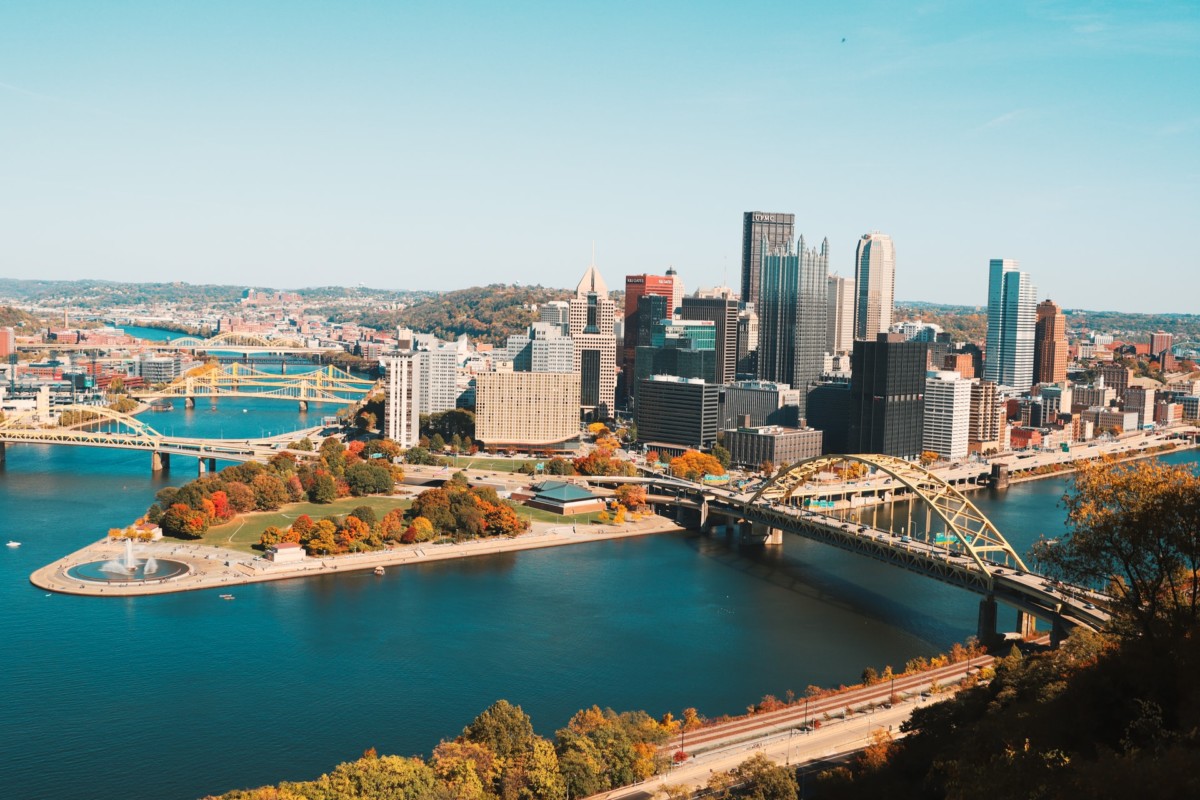
Pennsylvania, often referred to as the Keystone State, is located in the northeastern and Mid-Atlantic regions of the United States. As of my knowledge cutoff in September 2021, it’s the fifth most populous state in the U.S., with a diverse population of over 12 million residents.
One of the original 13 colonies, Pennsylvania has a rich historical background. It was here that the U.S. Declaration of Independence was signed in 1776 and the U.S. Constitution was drafted in 1787, both in the city of Philadelphia. This city is also home to the Liberty Bell, an iconic symbol of American independence.
The state’s geography is diverse, featuring wide stretches of farmland, national forests, mountains (including the Appalachian range), and major bodies of water like Lake Erie to the northwest. Pennsylvania’s largest cities include Philadelphia, Pittsburgh, Allentown, and Erie.
Pennsylvania’s economy is robust and diverse, with significant contributions from sectors such as manufacturing, health care, agriculture, and education. It’s also known for its production of steel, coal, and, historically, its oil reserves.
Culturally, Pennsylvania is a blend of numerous influences, including those of its Amish population, particularly in areas like Lancaster County. The state is also famous for its food culture, with iconic foods like Philly cheesesteaks, soft pretzels, and whoopie pies.
Pennsylvania is a state with rich heritage, natural beauty, and an array of cultural experiences, making it a fascinating destination for both residents and visitors alike.
Here’s some statistical information about Pennsylvania:
Area: Approximately 46,055 square miles (119,282 square kilometers)
Population: As of my last update in September 2021, Pennsylvania’s population was estimated to be around 12.8 million people.
Demographics: The demographic makeup of Pennsylvania is diverse. The majority of the population identifies as White (around 80%), followed by African Americans (around 11%). There are also smaller populations of Hispanic, Asian, and Native American residents.
History: Pennsylvania holds significant historical importance for the United States. It was one of the original 13 colonies and played a crucial role during the American Revolutionary War. The state was the birthplace of the Declaration of Independence, which was adopted in Philadelphia on July 4, 1776. Pennsylvania was also the site of the Constitutional Convention in 1787, leading to the creation of the U.S. Constitution.
Economy: Pennsylvania boasts a diverse economy with various industries contributing to its prosperity. Historically, the state has been known for its steel production, coal mining, and manufacturing sectors. In recent years, the economy has shifted to include a more balanced mix of industries, such as healthcare, education, technology, finance, and agriculture. Additionally, Pennsylvania has a rich agricultural sector, producing crops like corn, wheat, and dairy products.
Please note that these statistics are based on information available up to September 2021, and the numbers may have changed since then.
A Collection of Pennsylvania Maps
Map of Pennsylvania
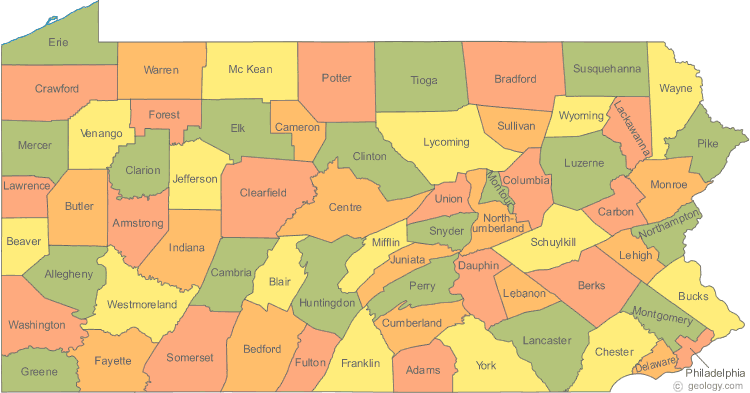
Color map of Pennsylvania
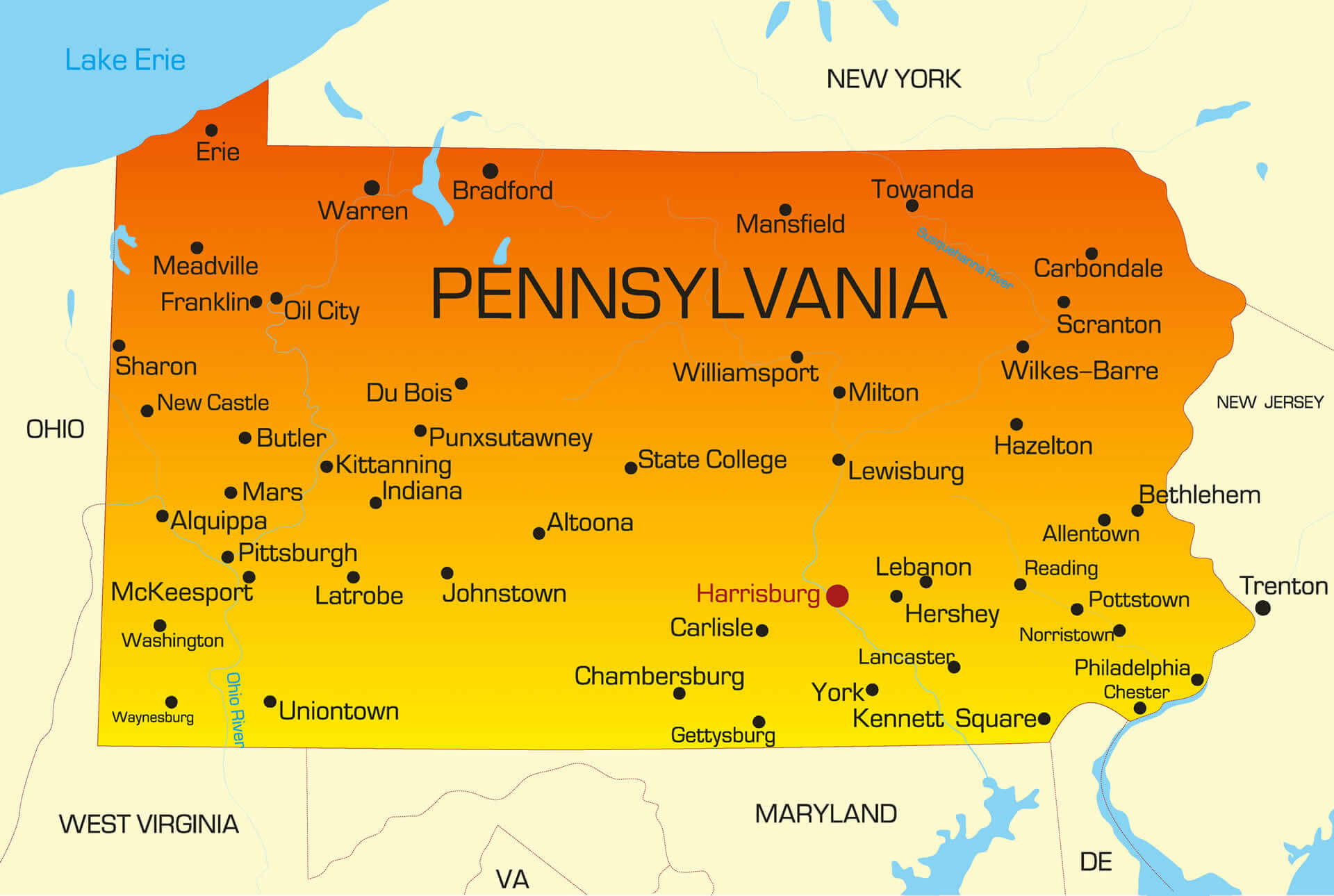
Pennsylvania State Plate Map
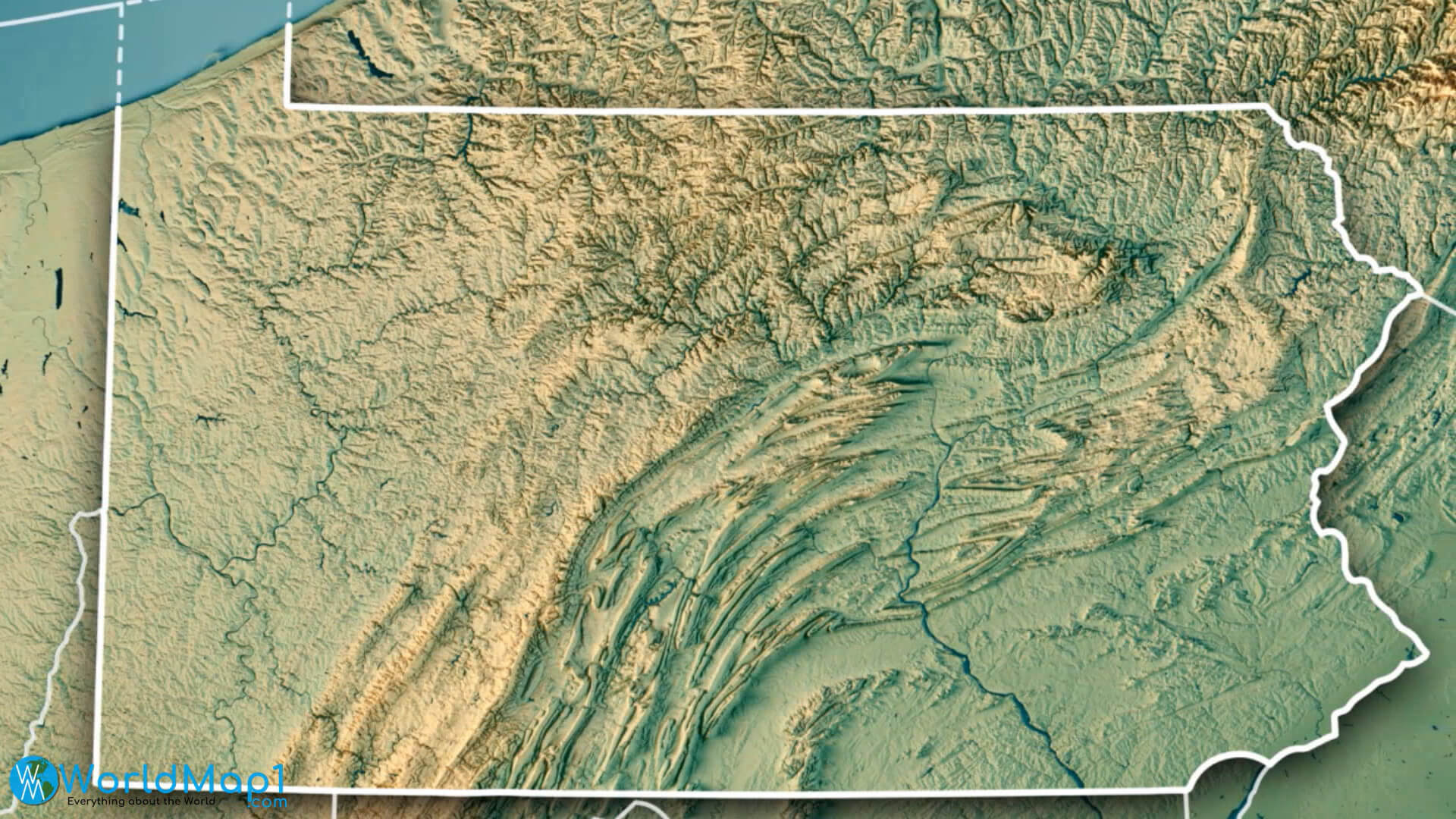
County map of Pennsylvania
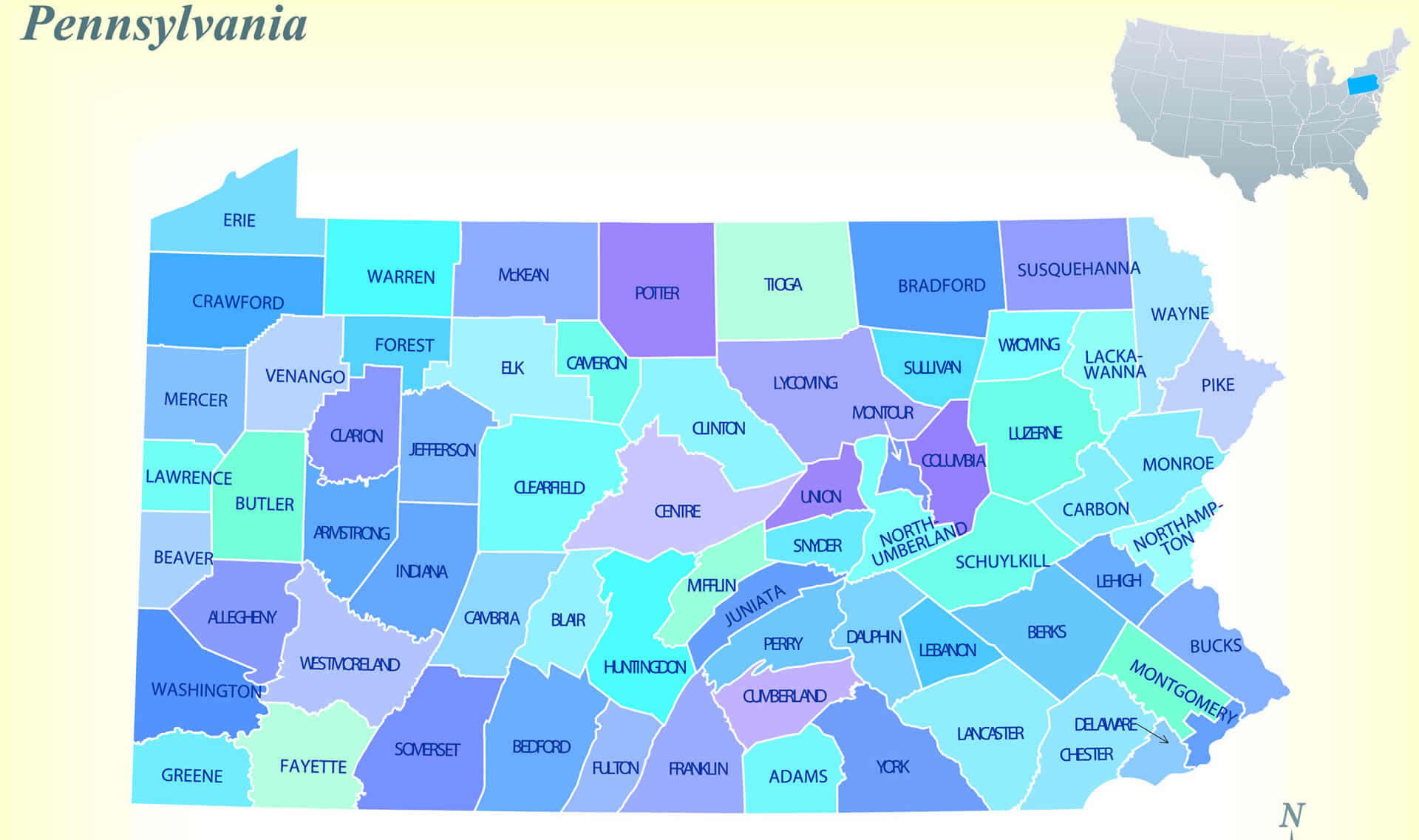
Pennsylvania satellite map
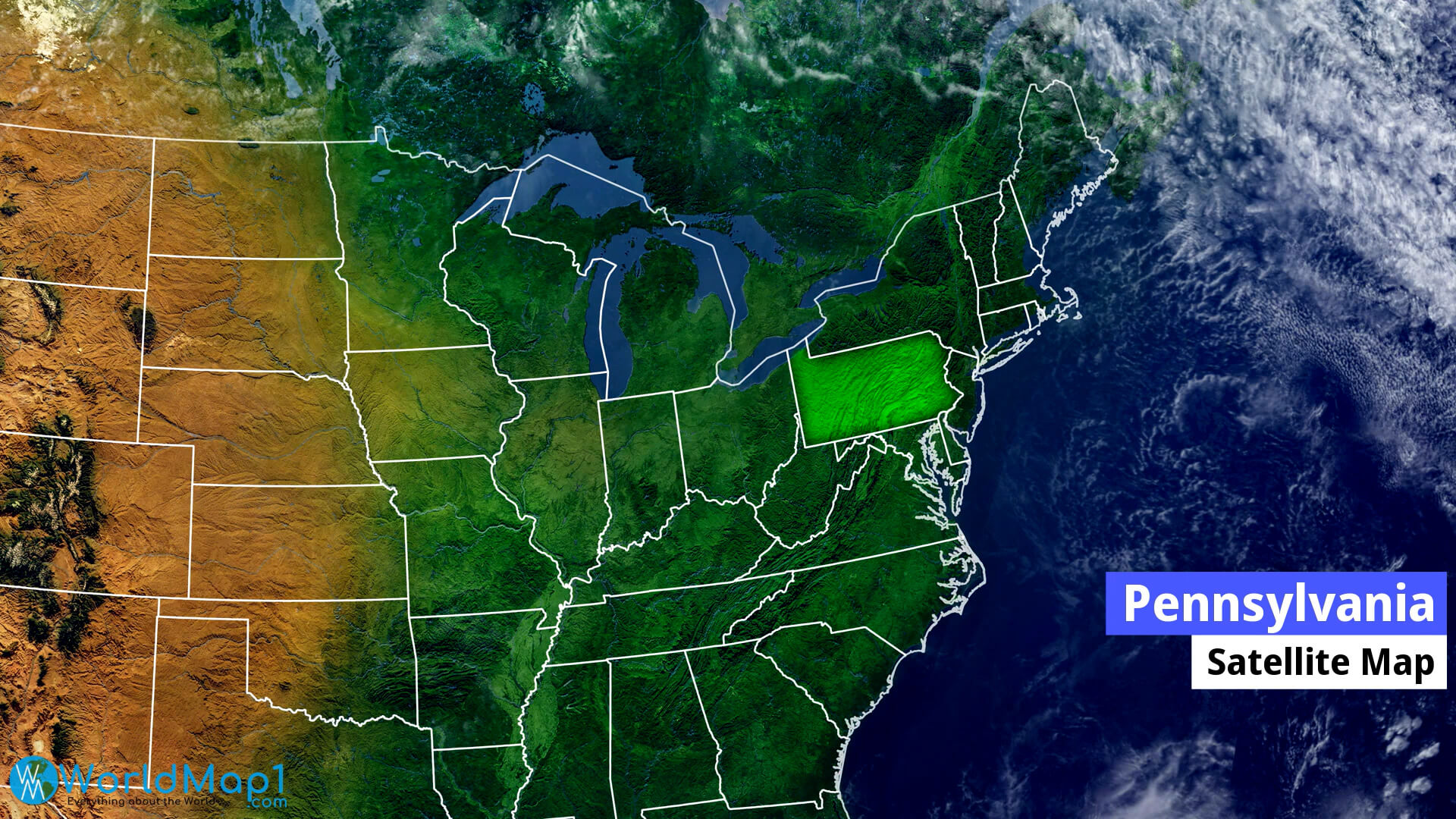
Pennsylvania counties and major cities map
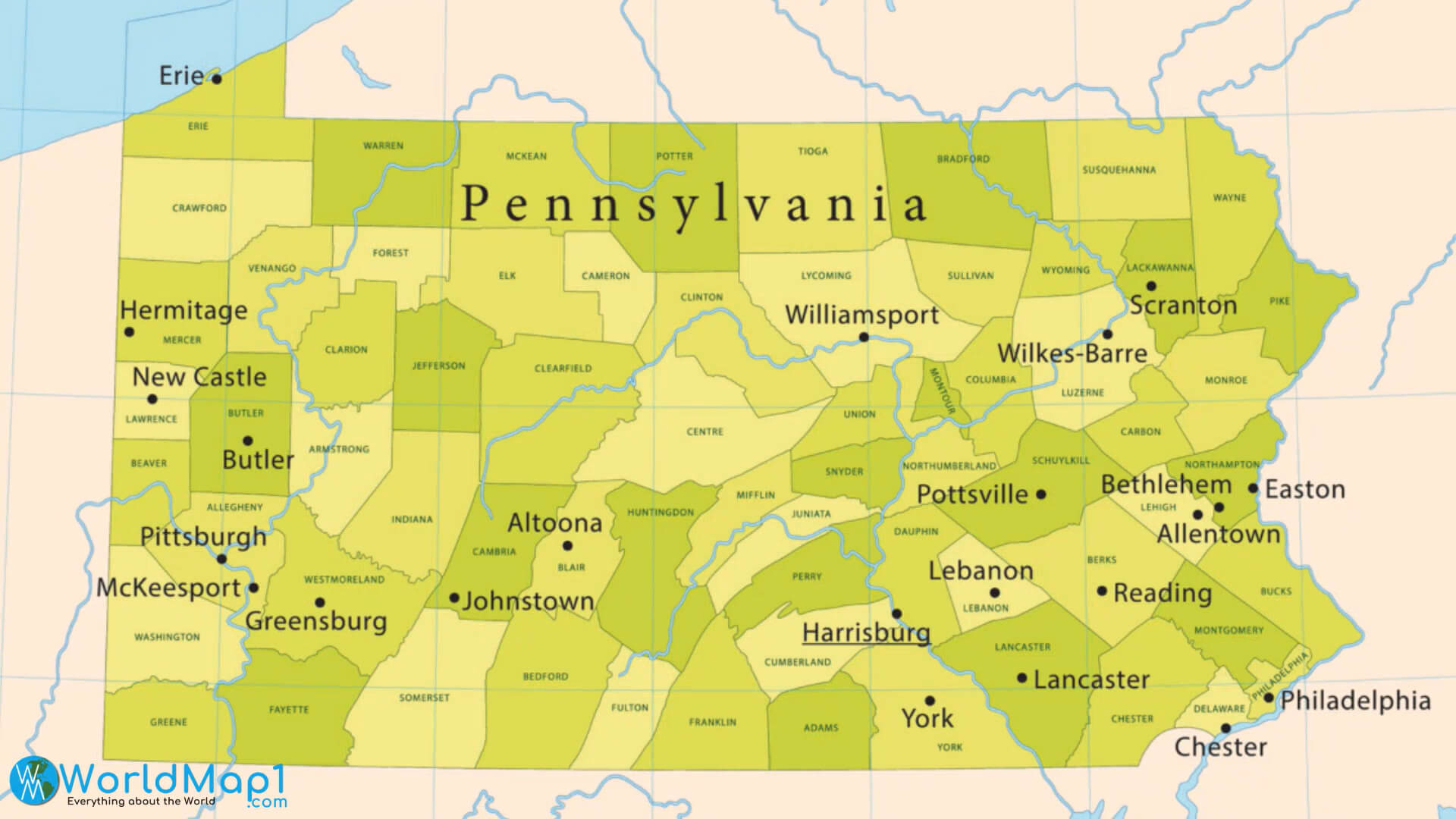
Pennsylvania road map
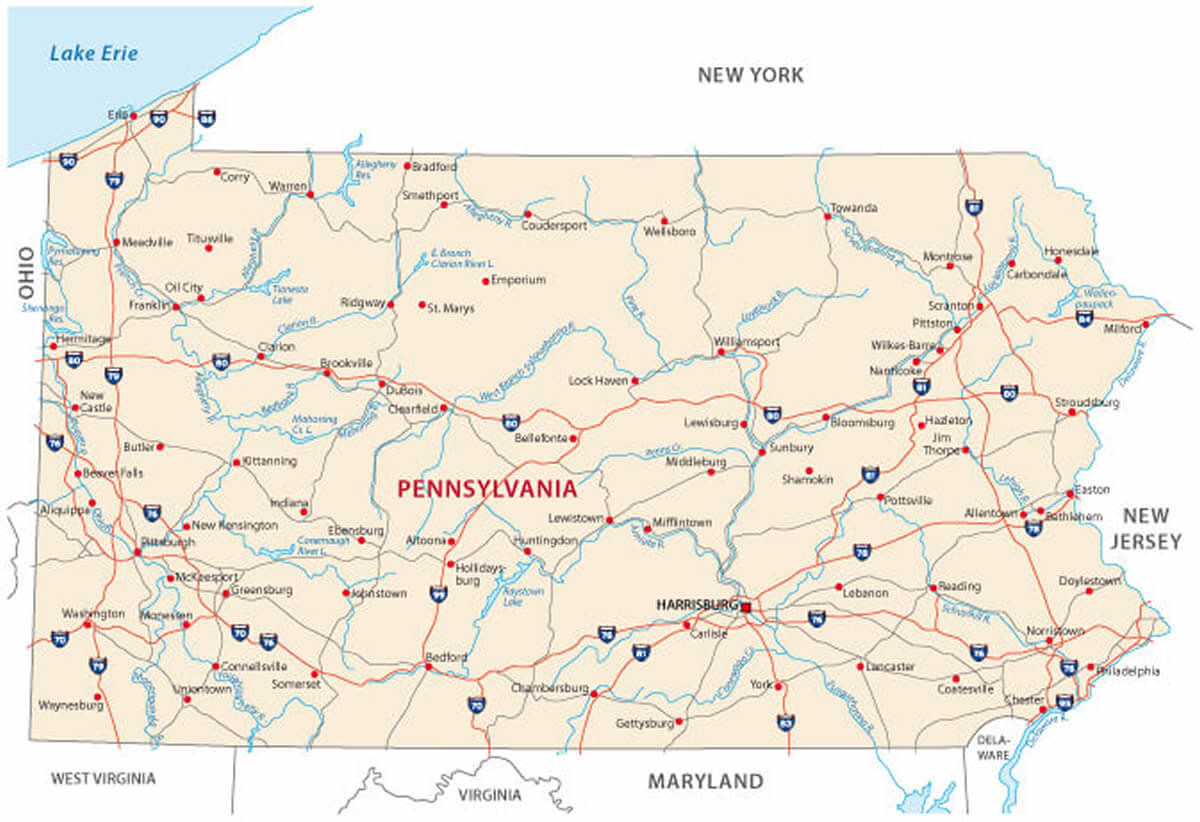
Where is Pennsylvania on the US Map?
Show Google map, satellite map, where is the country located.
Get directions by driving, walking, bicycling, public transportation and travel with street view.
Feel free to explore these pages as well:
- Virginia Map ↗️
- Map of Virginia ↗️
- Virginia Photos ↗️
- About Virginia ↗️
- Exploring Arlington, VA: A Blend of History, Culture, and Modern Vibes! ↗️
- Journey Through Pennsylvania: A Guide to Its Wonders and Its Place on the Map ↗️
- Maryland Map ↗️
- Map of Maryland ↗️
- Discovering Baltimore: The Charm City Awaits ↗️
- Journey Through Pennsylvania: A Guide to Its Wonders and Its Place on the Map ↗️
- Map of New Jersey ↗️
- Map of United States ↗️
- North America Earth Map ↗️
- Map North America ↗️
